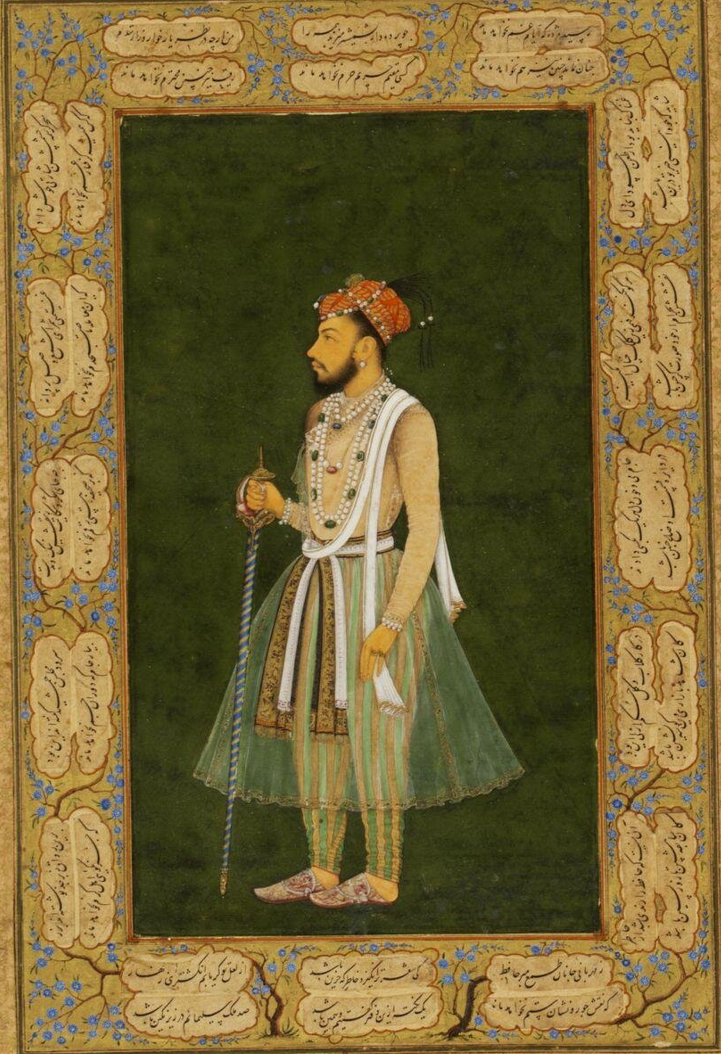Mirza Shah Shuja (23 June 1616 – 7 February 1661) was the second son of Mughal Emperor Shah Jahan and Empress Mumtaz Mahal. Upon his birth, he was adopted by his stepmother, Empress Nur Jahan, a decision influenced by her elevated status, political influence, and the affection that Jahangir held for her. Shah Shuja had several siblings, including his eldest sister Jahanara Begum, as well as Dara Shikoh, Roshanara Begum, Aurangzeb, Murad Baksh, and Gauhara Begum, among others.
He fathered three sons: Sultan Zain-ul-Din (also known as Bon Sultan or Sultan Bang), Buland Akhtar, and Zainul Abidin, along with four daughters: Gulrukh Banu, Roshanara Begum, and Amina Begum. His first marriage was to Bilqis Banu Begum, the daughter of Rustam Mirza, on the evening of Saturday, 5 March 1633. Following the death of his first wife, he wed Piari Banu Begum, who bore him two sons and three daughters: Prince Zain-ud-din Mirza, Prince Zain-ul-Abidin Mirza, Gulrukh Banu Begum, Raushan Ara Begum, and Amina Banu Begum.
A power struggle emerged among the brothers after Shah Jahan fell ill in September 1657. Shah Shuja declared himself Emperor, but Aurangzeb ultimately claimed the throne of Delhi and dispatched Mir Jumla to confront Shuja. On 5 January 1659, Shuja was defeated in the Battle of Khajwa. He subsequently retreated to Tanda and later to Dhaka on 12 April 1660. On 6 May, he departed Dhaka and boarded ships near present-day Bhulua on 12 May, intending to reach Arakan.
Reached Arakan
A multitude of palanquins was employed to transport Shuja’s harem, and he conducted Eid prayers at an Eidgah located in Dulahzara. Shuja and his retinue arrived in Arakan on August 26, 1660, where they were received with respect in the capital, Mrauk U. The Arakanese monarch, the formidable Sanda Thudhamma, had previously consented to provide vessels for Shuja and his family to journey to Mecca, where the prince intended to spend the rest of his days. The substantial cargo of gold and jewels brought by the Mughal royals was unprecedented in Arakan.
Refused to Marry his Daughter to Sanda Thudhamma
After a span of eight months filled with various pretexts, Sanda Thudhamma’s promise of ships failed to materialize. Ultimately, he sought the hand of Shuja’s daughter in marriage, a request that the prince declined. In retaliation, Sanda Thudhamma ordered the Mughals to vacate within three days. Faced with the inability to depart and denied provisions at the markets, Shuja resolved to attempt to overthrow the king. Accompanied by two hundred soldiers and bolstered by the support of local Muslims, he believed he had a viable chance of success. However, Sanda Thudhamma was alerted to the impending coup. Consequently, Shuja resorted to setting the city ablaze, hoping to escape amidst the ensuing chaos. While a significant portion of his entourage was captured, Shuja initially fled into the jungle but was later apprehended and executed.
Pregnant Wife Starved to Death
Sanda Thudhamma seized Shuja’s wealth, which he melted down, and incorporated the Mughal princesses into his harem, marrying the eldest, an event that was later commemorated in songs and poetry. However, the following year, wary of another insurrection, Sanda Thudhamma had Shuja’s sons executed and his daughters, including the pregnant eldest, starved. Aurangzeb, incensed by these atrocities, commanded a military campaign against the kingdom. Following a protracted siege, the Mughals captured Chittagong, leading to the enslavement of thousands of Arakanese. The kingdom of Arakan was unable to regain its former prominence, and the eventual death of Sanda Thudhamma ushered in a period of turmoil.
